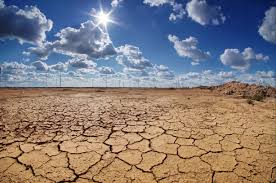The United Nations Convention to Combat Desertification proposes to the States of the planet that one fifth of their tax revenues, levied to subsidize certain products, be used for the restoration of their land.
This new mechanism was unveiled in Abidjan by the Executive Secretary of the United Nations Convention to Combat Desertification, Ibrahim Thiaw, during a press briefing at COP 15.
“There are two sources of funding that we see, on our side, the first is to reduce harmful subsidies. Many subsidies are paid by citizens, through taxes that are used to subsidize certain products,” he said.
And he added, “It is sometimes subsidies that are harmful to nature, biodiversity and climate. What we propose is that only 1/5 of these subsidies be reused positively for the restoration of (degraded) land.”
“So we are not asking for additional funds, as a citizen,” he said, before insinuating that the second source of funding is essentially aimed at the private sector, because companies are the ones making the products.
Large companies must “think long-term, more than short-term, with an emphasis on management more than exploitation,” while financially supporting small farmers to restore their natural environment, he continued.
Ambassador Philippe Lacoste, present at the press briefing, headed the French and European delegation. At this 15th Conference of the Parties of the United Nations on Desertification and Drought, France holds the presidency of the EU.
He said that “France is particularly attached to this convention because it was signed in Paris, in 1994, and therefore we believe that we have a form of responsibility in its monitoring and implementation as the Paris Agreement on climate.”
Mr. Lacoste revealed that this convention was desired by the African States, which insisted in Rio that we have this “instrument of international cooperation.” This convention for France is the moment to discuss a number of initiatives it has launched.
These include the acceleration of the Great Green Wall, intended for 11 countries in the Sahel, the initiative to support the production of plant proteins, launched at the European Union-African Union Summit in February, for local production and consumption, he said.
The EU emphasizes agricultural production in connection with the health of the land and soil, and “with all my European colleagues, we take advantage of this convention to try to have concrete responses that go to more sustainable practices,” he said.
In the world, 40 percent of land is already degraded, which is twice the size of Africa, said the Executive Secretary of the United Nations Convention to Combat Desertification, Mr. Ibrahim Thiaw.
Today, the world’s land is experiencing a level of degradation that is extremely high at the moment and is mainly due to our production and consumption patterns, Thiaw said.
“We have exploited the land and over the last 100 years there has been an extremely large economic boom in the world and we are paying the price now. We have almost destroyed 40% of the world’s land,” he said.
“If things continue in the current state, with the trends we know, by the middle of this century, so in less than 30 years, up to 90 percent of the world’s land could be affected by degradation, and this is not sustainable,” he warned.
To do this, he recommended, that we must “review our production methods” by adapting new technologies and methods of agricultural production, animal as well as interaction with water resources, as well as forests and consider the recycling of clothing.
“Until now, a third of the food produced is not consumed (in the world) and it is millions of tons of food, so thousands of hectares of land and water that are wasted,” he continued.
The United Nations Convention to Combat Desertification aims to restore one billion hectares of degraded land by 2030. At this COP 15, some 6,000 participants were registered at the end of the week of which 4,000 have already withdrawn their badges.
The COP 15 is taking place in the context of a severe warning issued by the United Nations. The resolutions should lead to the Abidjan Initiative, a set of programs to fight desertification.
AP/ls/cgd/fss/abj/APA


